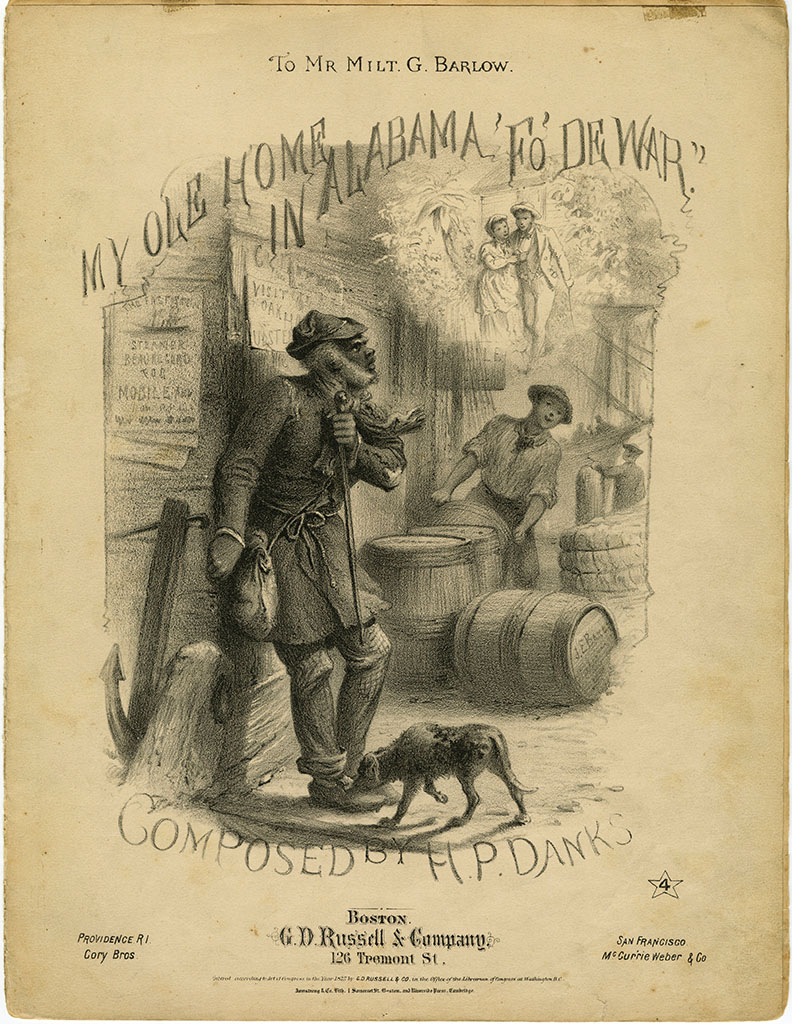Legacies
Rewriting History

Chorus —
Dar’s but little consolation for a darkey ole as me
Dar’s but one good place ob rest I eber saw
Down upon de ole plantation ‘twas as happy as could be
My ole home in Alabama, ‘fo’ de war.
Cover art of a late Reconstruction dialect song, featuring a freedman who longs to return to “de ole Plantation.” Such nostalgic depictions of happy enslaved people were used to bolster the argument that slavery was a good institution, that everything was fine in the South “’fo’ de war.”
My ole home in Alabama ‘fo’ de war [score], 1875. [Wade Hall Sheet Music Collection, M1621.D36 M9 1875x]
let politics alone
Let politics alone; you have nothing under the sun to gain and much to lose, by antagonizing your white neighbors. Don’t go to bad white men for advice and instruction, but go to honest men whom you have known from your infancy. Cultivate good will and kindly feeling with your white friends, and affiliate no longer with designing men who seek offices and gain, by imposing upon your ignorance. Go to work; live honestly; make your children work, and bring them up to be useful citizens…
The election is over now. Your votes against us were harmless in the recent election, as they will be in all future elections held in Alabama…
From an 1876 editorial addressed to African American citizens. It advises them to focus on their work and abandon politics — especially as their votes in opposition had not been effective, and never would be.
“Advice to Negroes,” Tuscaloosa Times, Nov. 22, 1876.
Reconstruction was not just a process of Southern reintegration, ending with “redemption” in 1877. In fact, that was just the beginning. In the coming decades, new laws disenfranchised people of color, stripping away newly won rights and erecting political and social barriers.
While many of these laws were defeated in the wake of the Civil Rights Movement of the 1950s-1960s, this long history of institutionalized inequity continues to shape our country.